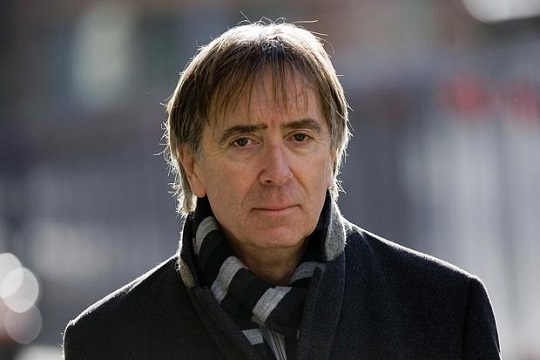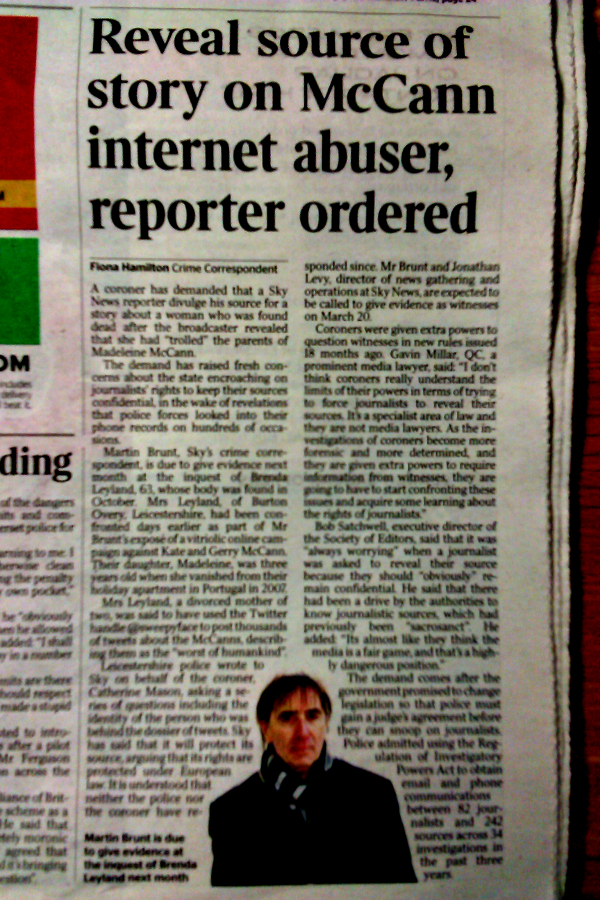|
A coroner has demanded that a Sky News
reporter divulge his source for a story
about a woman who was found dead after
the broadcaster revealed that she had
"trolled" the parents of Madeleine
McCann.
The demand has raised fresh concerns
about the state encroaching on
journalists' rights to keep their
sources confidential, in the wake of
revelations that police forces looked
into their phone records on hundreds of
occasions.
Martin Brunt, Sky's crime correspondent,
is due to give evidence next month at
the inquest of Brenda Leyland, 63, whose
body was found in October.
Mrs Leyland, of Burton Overy,
Leicestershire, had been confronted days
earlier as part of Mr Brunt's expose of
a vitriolic online campaign against Kate
and Gerry McCann. Their daughter,
Madeleine, was three years old when she
vanished from their holiday apartment in
Portugal in 2007.
Mrs Leyland, a divorced mother of two,
was said to have used the Twitter handle
@sweepyface to post thousand of tweets
about the McCanns, describing them as
the "worst of humankind".
Leicestershire police wrote to Sky on
behalf of the coroner, Catherine Mason,
asking a series of questions including
the identity of the person who was
behind the dossier of tweets. Sky has
said that it will protect its source,
arguing that its rights are protected
under European law. It is understood
that neither the police nor the coroner
have responded since.
Mr Brunt and Jonathan Levy, director of
news gathering operations at Sky News,
are expected to be called to give
evidence as witnesses on March 20.
Coroners were given extra powers to
question witnesses in new rules issued
18 months ago. Gavin Millar, QC, a
prominent media lawyer, said: "I don't
think coroners really understand the
limits of their powers in terms of
trying to force journalists to reveal
their sources. It's a specialist area of
law and they are not media lawyers. As
the investigations of coroners become
more forensic and more determined, and
they are given extra powers to require
information from witnesses, they are
going to have to start confronting these
issues and acquire some learning about
the rights of journalists."
Bob Satwell, executive director of the
Society of Editors, said that it was
"always worrying" when a journalist was
asked to reveal their source because
they should "obviously" remain
confidential. He said that there had
been a drive by the authorities to know
journalistic sources, which had
previously been "sacrosanct". He added:
"Its almost like they think the media is
a fair game, and that's a highly
dangerous position."
The demand comes after the government
promised to change legislation so that
police must gain a judge's agreement
before they can snoop on journalists.
Police admitted using the Regulation of
Investigatory Powers Act to obtain email
and phone communications between 82
journalists and 242 sources across 34
investigations in the past three years.
Sky News and Leicestershire Police
declined to comment. |




